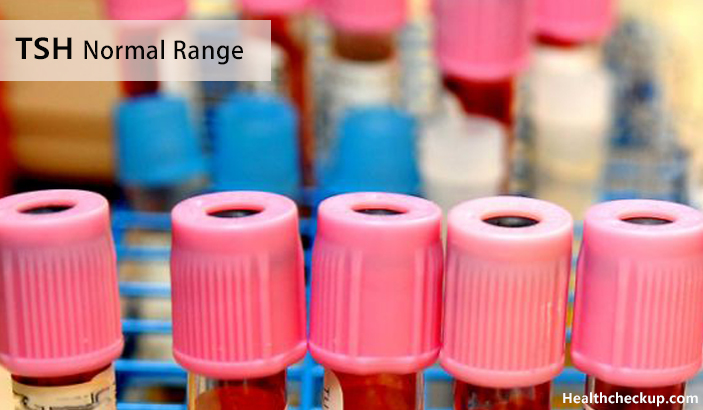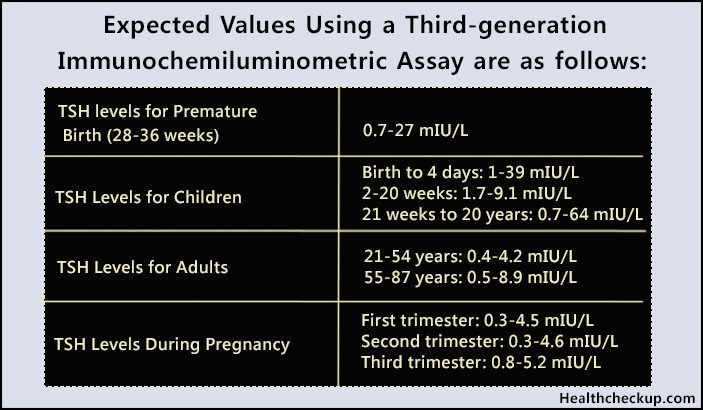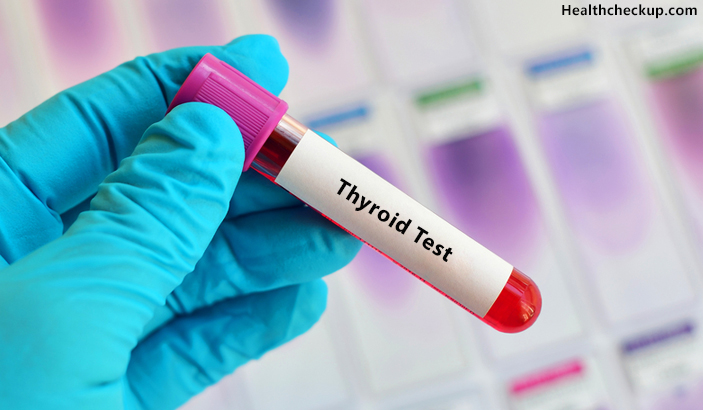What is TSH Test?
A TSH Test is done to find out if your thyroid gland is working the way it should. It can tell you if it’s overactive (hyperthyroidism) or underactive (hypothyroidism). The test can also detect a thyroid disorder before you have any symptoms. If untreated, a thyroid disorder can cause health problems.
TSH stands for “Thyroid Stimulating Hormone” and the test measures how much of this hormone is in your blood. TSH is produced by the pituitary gland in your brain. This gland tells your thyroid to make and release the thyroid hormones into your blood.
The TSH test involves simply drawing some blood from your body. The blood will then be analyzed in a lab.
It’s best to do this in the morning as your TSH levels can fluctuate throughout the day. No preparation is needed (such as overnight fasting).
However, if you’re on certain medications, like dopamine and lithium, you may need to come off them beforehand. Check with your doctor to find out. You shouldn’t feel any pain beyond a small prick from the needle in your arm. You may have some slight bruising too.
How is TSH Test ( Thyroid-Stimulating Hormone) Used?
The Thyroid Stimulating Hormone (TSH) test is often the test of choice for evaluating thyroid function and/or symptoms of a thyroid disorder, including hyperthyroidism or hypothyroidism.
TSH is produced by the pituitary gland, a tiny organ located below the brain and behind the sinus cavities. It is part of the body’s feedback system to maintain stable amounts of the thyroid hormones thyroxine (T4) and triiodothyronine (T3) in the blood and to help control the rate at which the body uses energy.
A TSH test is frequently ordered along with or preceding a free T4 test. Other thyroid tests that may be ordered include a free T3 test and thyroid antibodies (if autoimmune-related thyroid disease is suspected). Sometimes TSH, free T4 and free T3 are ordered together as a thyroid panel.
TSH Testing is Used to:
- Diagnose a thyroid disorder in a person with symptoms
- Screen newborns for an underactive thyroid
- Monitor thyroid replacement therapy in people with hypothyroidism
- Monitor anti-thyroid treatment in people with hyperthyroidism
- Help diagnose and monitor infertility problems in women
- Help evaluate the function of the pituitary gland (occasionally)
- Screen adults for thyroid disorders, although expert opinions vary on who can benefit from screening and at what age to begin
TSH Test Results and Interpretation
High Levels of TSH
The normal TSH range is 0.4 to 5 milli-international units per liter (mIU/L). If your level is higher than this, chances are you have an underactive thyroid. Pregnancy can also make your TSH levels higher. If you’re on medications like steroids, dopamine, or opioid painkillers (like morphine), you could also get a lower-than-normal reading.
Low Levels of TSH
It’s also possible that the test reading comes back showing lower than normal levels of TSH and an overactive thyroid. This could be caused by:
- Too much thyroid hormone medication
- Graves’ disease ( your body’s immune system attacks the thyroid )
- Too much iodine in your body
- Too much of a natural supplement that contains the thyroid hormone
The TSH test usually isn’t the only one used to diagnose thyroid disorders. Other tests, like the free T3, the free T4, the reverse T3, and the anti-TPO antibody, are often used too when determining whether you need thyroid treatment or not.
TSH Normal Range
Age-specific and pregnancy-specific reference intervals have been established. There is no significant sex or race specific differences.
Test Results Outside the Reference Range
- A high TSH level with a low FT4 level: Hypothyroidism (under-active thyroid)
- A low TSH level with a high FT4 level and a high FT3 level: Hyperthyroidism (over-active thyroid)
- Abnormal TSH levels together with normal FT4 levels indicate you may be at risk of developing a thyroid disorder
- A low TSH level together with a low FT4 level can indicate a disorder of the pituitary gland
Thyroid function tests can be influenced by medications and illnesses. Let the person taking your blood test know of anything that might affect the readings
Treatment
Treatment for an underactive thyroid usually involves taking a synthetic thyroid hormone by pill daily. This medication will get your hormone levels back to normal, and you may begin to feel less tired and lose weight.
To make sure you’re getting the right dosage of medication, your doctor will check your TSH levels after 2 or 3 months. Once she is sure you are on the correct dosage, she will continue to check your TSH level each year to see whether it is normal.
If Your Thyroid is Overactive, there are Several Options:
• Radioactive iodine to slow down your thyroid
• Anti-thyroid medications to prevent it from overproducing hormones
• Beta blockers to reduce a rapid heart rate caused by high thyroid levels
• Surgery to remove the thyroid (this is less common)
Your doctor may also regularly check your TSH levels if you have an overactive thyroid.
Is there Anything else I should know?
It is important to note that TSH, free T4, and free T3 tests are a “snapshot” of what is occurring within a dynamic system. An individual person’s thyroid testing results may vary and may be affected by:
• Increases, decreases, and changes (inherited or acquired) in the proteins that bind T4 and T3
• Pregnancy
• Estrogen and other drugs
• Liver disease
• Systemic illness
• Resistance to thyroid hormones
• Many medications — including aspirin and thyroid-hormone replacement therapy — may affect thyroid gland function test results and their use should be discussed with the health practitioner prior to testing.
Illnesses not directly related to the thyroid, “nonthyroidal illnesses,” can affect thyroid hormones levels. In particular, the level of T3 can be low in nonthyroidal illness (NTI). Typically, the thyroid hormone levels return to normal after a person recovers from the nonthyroidal illness. Historically, this condition was referred to as “Euthyroid Sick Syndrome” but that term is controversial because there is some question as to whether those affected have a thyroid gland that is functioning normally (euthyroid).
When a health practitioner adjusts a person’s thyroid hormone replacement dosage, it is important to wait for at least one to two months before checking the TSH again so that the new dose can have its full effect.
Extreme stress and acute illness may affect TSH normal ranges during the test. It is generally recommended that thyroid testing is avoided in hospitalized patients or deferred until after a person has recovered from an acute illness.
Medically Reviewed By

I am an experienced Medical/Scientific writer with a passion for helping people live a happy healthy life. My thirst for writing has followed me throughout the years – it is there when I wake up, lingering at the edges of my consciousness during the day, and teases me at night as I go to sleep.












